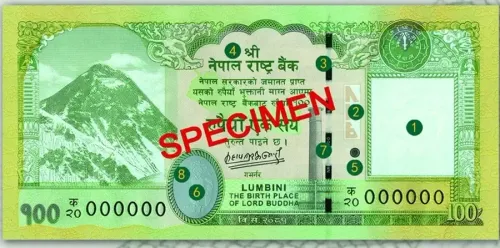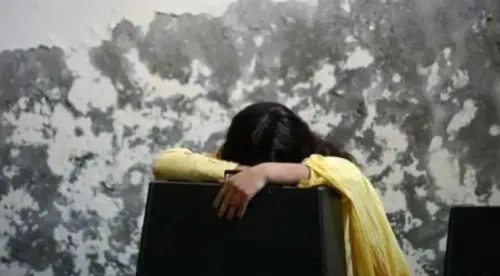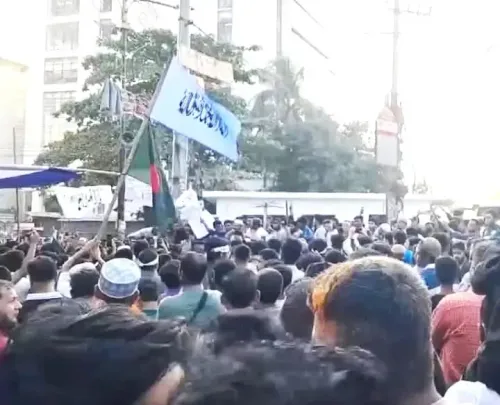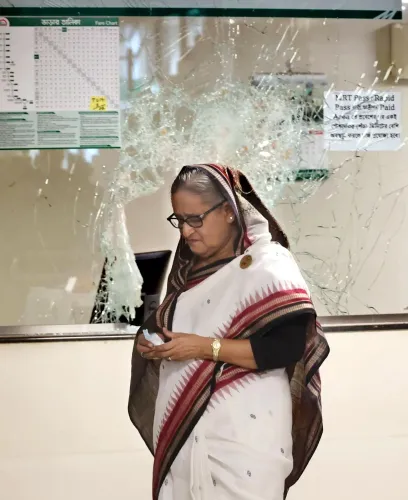Why Are Bangladesh School Teachers Protesting Over Pay and Promotion?
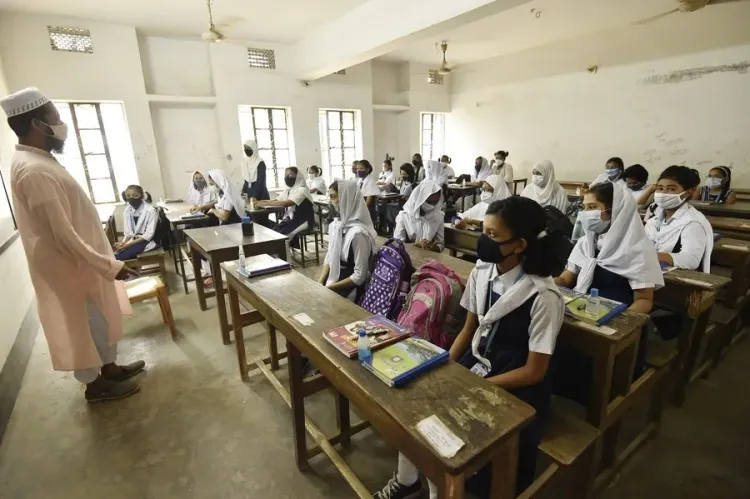
Synopsis
Key Takeaways
- Teachers are demanding a pay upgrade to grade 10.
- They seek to end discrimination in promotions.
- Equal status with secondary teachers is a key issue.
- Protests may escalate to a hunger strike if demands are unmet.
- Economic conditions are worsening for educators.
Dhaka, Nov 27 (NationPress) Educators from Bangladesh's government primary schools have resumed a comprehensive work stoppage on Thursday, conducting a strike on school grounds to advocate for their three-point demands, as reported by local media.
The educators declared they would not enter classrooms until their requests are fulfilled, while the “Student Learning Assessment – Second Phase” has also been halted as part of this initiative.
Shamsuddin Masud, the central president of the Bangladesh Primary School Assistant Teachers’ Association, stated that the strike is being collectively observed because the Ministry under the Muhammad Yunus-led interim government has shown “no visible progress” on their demands throughout November.
“One of our colleagues died and many others were injured due to police action (earlier this month). We will not participate in classes or examinations until the government issues a notification addressing our demands,” Khayrun Nahar Lipi, General Secretary of the Bangladesh Primary Teachers' Association, was quoted by Bangladesh’s prominent newspaper, The Daily Star.
Primary school teachers initiated a three-day work stoppage on Tuesday to voice their demands regarding pay scales and promotions. They have threatened to boycott the annual examinations and commence a hunger strike in December if their requests remain unaddressed.
The educators are advocating for their three-point demands, which include upgrading their pay scale to grade 10, eliminating promotional discrimination, and ensuring equal status with secondary-level teachers.
In a related note, teachers from government higher secondary schools have warned that all academic activities will be suspended from December 1 if their four-point demand, which includes upgrading the position of assistant teacher from grade 10 to grade 9, is not met.
This announcement followed a sit-in in front of the Shikka Bhaban in Dhaka on Thursday morning under the banner of the Bangladesh Secondary Teachers' Association.
The teachers claimed that they have encountered long-standing “discrimination” and pointed out that they have previously staged multiple movements.
“This time, we will return to our institutions only after our demands are fulfilled,” said one of the protesting educators.
As examinations approach, regular classes for this year have concluded, with another teacher adding, “Initially, we will not conduct any examinations. We will maintain our work abstention.”
Bangladesh has seen a rise in protests under the Yunus-led interim government as the nation struggles with economic downturn and declining working conditions.

